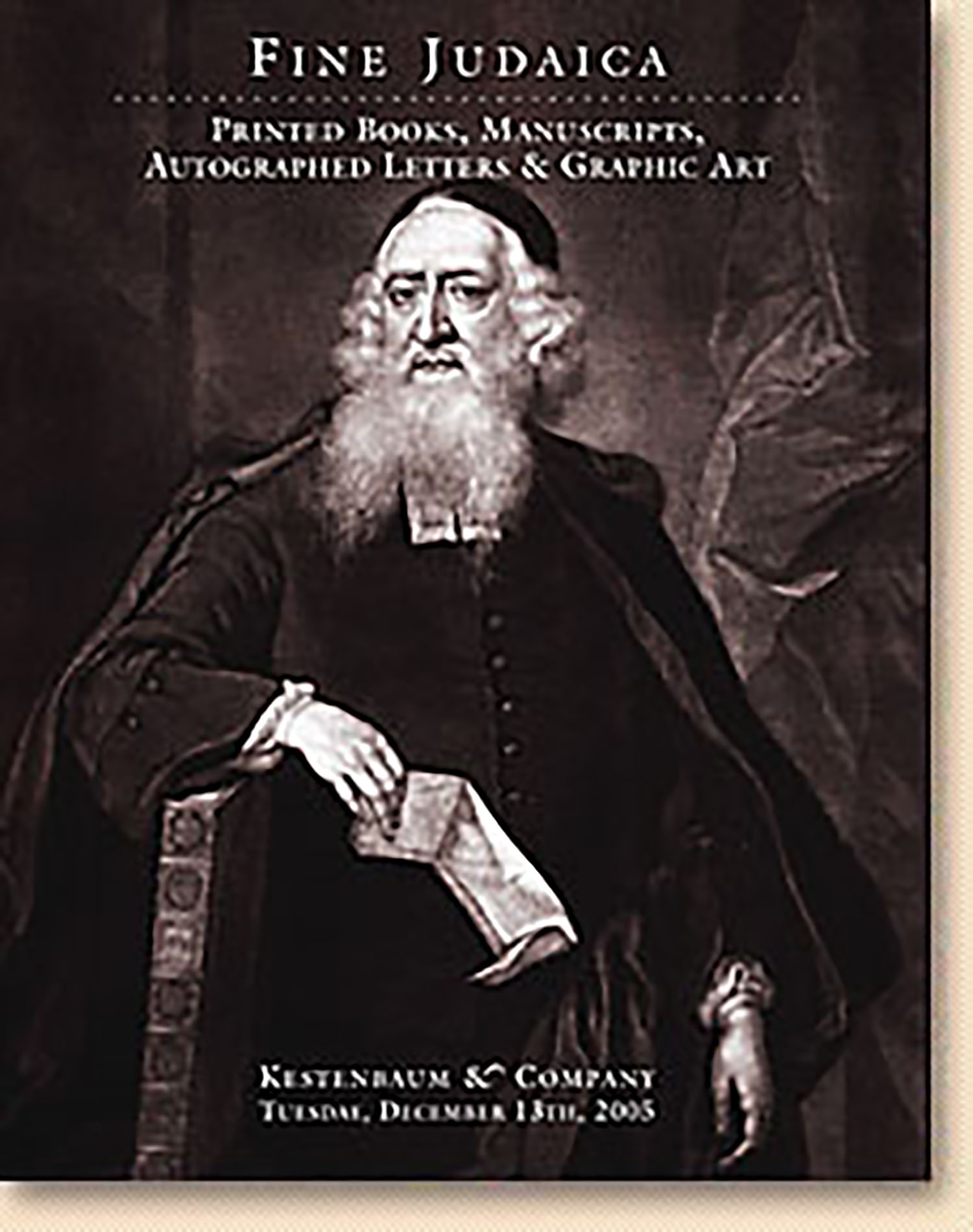Jacob Jackson Noah. Hebrew Education. In: Report of the Commissioner of Education Made to the Secretary of the Interior for the Year 1870

AUCTION 31 |
Tuesday, December 13th,
2005 at 1:00
Fine Judaica: Hebrew and Other Printed Books
Lot 26
(AMERICAN JUDAICA).
Jacob Jackson Noah. Hebrew Education. In: Report of the Commissioner of Education Made to the Secretary of the Interior for the Year 1870
Washington, D.C: Government Printing Office 1870
Est: $3,000 - $4,000
PRICE REALIZED $4,250
This government publication on the state of education in America includes an essay by Jacob Jackson Noah, a son of Mordecai Manuel Noah, surveying the history of Jewish education in general, and in America in particular. Essentially a piece of apologetics, Noah demonstrated that education was the foundation of the superior moral virtues of the Jewish people. Noah also emphasized Jewish patriotism (especially as reflected in liturgy and in the platform of the Cleveland Reform Conference), referred to the correspondence between George Washington and the Jews, and highlighted the Jewish preference for public schools over parochial schools (actually the subject of a fiery debate then raging in the American Jewish community). He also reviewed the accomplishments of his father and presented the Jewish population of America at an inflated one million.
Noah concluded his essay by printing letters he solicited from various rabbis on the state of Jewish education (student statistics, number and types of schools, etc.) in their communities: Cincinnati (by Isaac M. Wise), Chicago (by Bernhard Felsenthal), Philadelphia (by George Jacobs), Baltimore (by Solomon Deutsch), St. Louis (by Solomon Hirsch Sonneschein) and Boston (unsigned). Commenting on the debate over public schooling, Wise concluded his report by stating: “It is our opinion here that . . . [the] secular branches belong to the public schools, religion to the Sabbath schools, exclusively.” In a review of Noah’s essay, Education Commissioner John Eaton, Jr., noted that other immigrants could learn from American Jews’ “fondness for American liberty” (p. 29).
Jacob Jackson Noah (1830-74) fought in the Civil War, served as the attorney general of Tennessee, and following in his father’s footsteps, rose to prominence in Washington, D.C., as a journalist and politician. See Isaac Goldberg, Major Noah: American-Jewish Pioneer, pp. 287-9.
The present copy is from the library of Elroy M. Avery (1844-1935), a prominent Cleveland historian and author
